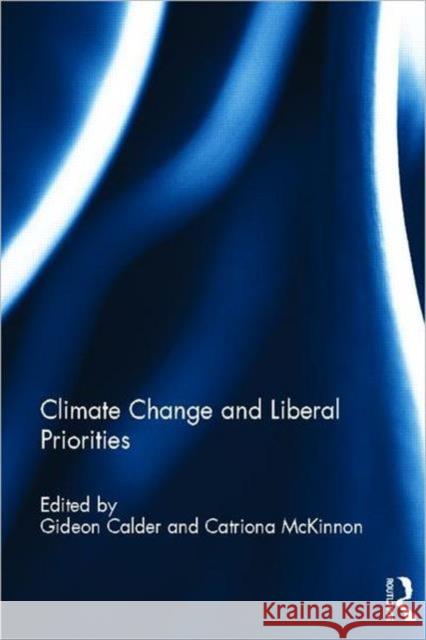Climate Change and Liberal Priorities » książka
Climate Change and Liberal Priorities
ISBN-13: 9780415453400 / Angielski / Twarda / 2010 / 200 str.
Climate Change and Liberal Priorities
ISBN-13: 9780415453400 / Angielski / Twarda / 2010 / 200 str.
(netto: 718,58 VAT: 5%)
Najniższa cena z 30 dni: 654,86
ok. 16-18 dni roboczych.
Darmowa dostawa!
Can, and should, liberalism make itself hospitable to a politics which does justice to climate change? To what extent are the values, methods, and assumptions of liberalism adaptable to the challenges raised? Liberal thinking -- broadly construed -- may dominate the Academy and the political landscape. Are the environmental priorities thrown into relief by climate change a threat to it, or an opportunity for it to show its worth? This book explore fresh arguments by leading scholars both sceptical of liberalism's capacity to meet these challenges, and sympathetic to the project of developing liberal values so as to create a liberal approach that can deliver climate change justice. The chapters appeal to new insights and considerations reveal the complexity of the issues at stake in the real world of climate change politics, and make the political theory of climate change justice available to decision-makers whose practice will determine whether we achieve it. This book was previously published as a special issue of Critical Review of International Social and Political Economy
Can, and should, liberalism make itself hospitable to a politics which does justice to climate change? To what extent are the values, methods, and assumptions of liberalism adaptable to the challenges raised? Liberal thinking – broadly construed – may dominate the Academy and the political landscape. Are the environmental priorities thrown into relief by climate change a threat to it, or an opportunity for it to show its worth? This book explore fresh arguments by leading scholars both sceptical of liberalism’s capacity to meet these challenges, and sympathetic to the project of developing liberal values so as to create a liberal approach that can deliver climate change justice. The chapters appeal to new insights and considerations reveal the complexity of the issues at stake in the real world of climate change politics, and make the political theory of climate change justice available to decision-makers whose practice will determine whether we achieve it.
This book was previously published as a special issue of Critical Review of International Social and Political Economy











